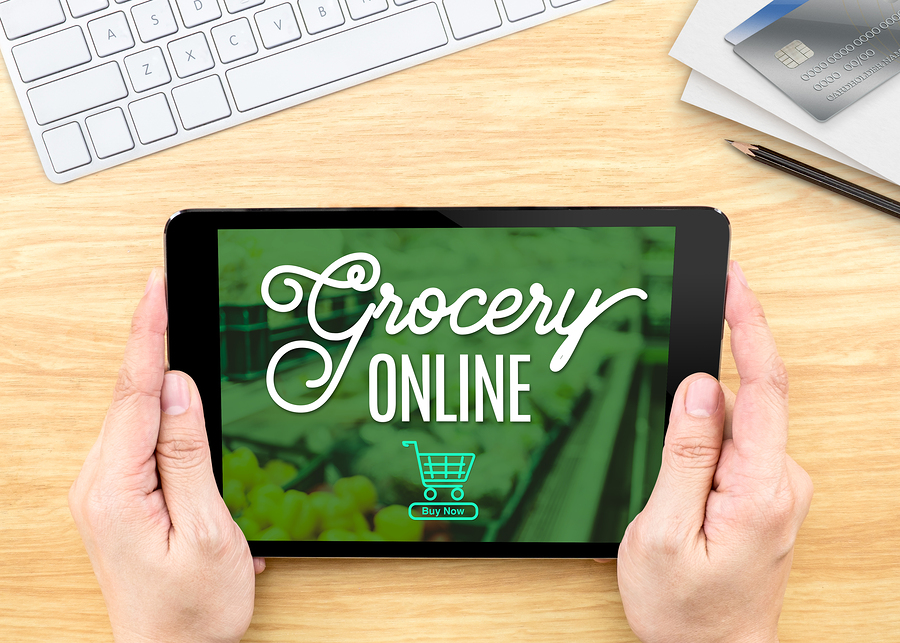
Who Do You Trust to Squeeze Your Tomatoes?
June 27th, 2017 Posted by Emergent digital tools, food experiences, Food Trend, Healthy Living, Retail brand building, shopper behavior 0 comments on “Who Do You Trust to Squeeze Your Tomatoes?”The ultimate test for success in the merger of premium food retail and the world’s most savvy distribution juggernaut
“And they’re off!” could well be the call to action for last week’s industry-shaking announcement that Amazon has gone deep into the bricks and mortar food retail business with its historic acquisition of the upscale Whole Foods Market chain. This sets in motion the race for grocery supremacy and, in some cases, survival in food retail’s transformative future.
Omnichannel shopping is a well reported behavioral change among consumers who may look to multiple retail outlets, as well as online formats to meet their various food shopping needs. So, the acceleration of e-commerce in concert with shifts in food retail business models is no surprise.
What makes this marriage so interesting is the merger of Amazon and its algorithm mastery, distribution, and delivery prowess, with what may arguably be the largest chain of culinary-focused, fresh, and organic food stores.
High food tech meets high food touch
Said Joe Robinson of Catapult in his MediaPost column (June 19, 2017):
“Amazon personifies convenience and it will be able to bring that benefit to the items most consumers really don’t want to shop for—those that are chores. Through a subscription plan, click and collect or home delivery, Amazon can increase the number of items available through that model. As for experience, consumers are looking for an engaging experience within the grocery format—be it a cheese tasting, wine pairing or cooking class. Amazon has now bought into more than 400 locations where it can start to bring this experience to life.”
According to the U.S. Grocery Shopper Trends 2017 report, released by the Food Marketing Institute and Hartman Group, 43 percent of Millennials shop online for groceries at least occasionally, leaping ahead of 28 percent just a year ago. Apparently, consumers are getting (a lot) more comfortable using online platforms to get their food.
That said, food is inherently an emotionally-driven category. And increasingly, people see food not only as a symbolic purchase of what we want the world to believe about us, but also is directly correlated to our overwhelming desire for a higher quality life. So what happens when food passion collides with food retailing technology?
Therein lies the secret to this marriage’s success and, in many respects, the future of the entire food retail industry. How should you marry food cred and expertise to ordering and delivery tech?
Trust looms large as a barrier to growth in e-commerce beyond the inherent attractions of convenience and price. People trust their own judgment when it comes to selecting perishables, especially produce and proteins.
Case in point: I have exacting standards on the meat I will buy – and come to the butcher counter with an eye towards my own quality perceptions. Said more simply, I care and make careful choices. Why? I take great pride in the foods I prepare and the outcomes of cooking, where ingredients will often make the difference between so-so and terrific.
Belief leads to trust. And how to cultivate belief? I want to know that the people involved with my food purchase care as much about the products and cooking as I do. What evidence is there in the form of relevant content that expresses passion for fresh ingredients, higher quality and creativity in the kitchen – which is then meaningful to me, and my lifestyle?
When it comes to CPG brands and retailers, we already know Millennials are especially concerned about honesty and openness around the issues of animal welfare, sustainability, ingredient sourcing commitments and social responsibility.
Combine this with the renaissance taking place right now in the kitchen, where fresh foods go to be reworked into something creative and exciting to eat. And right there you have the ingredients for building deeper meaning and relevance in how food brands and retailers go to market.
Building food credibility is job one
As belief is created, trust is achieved. With trust, the barriers to having others squeeze your tomatoes will come down.
In short, people need to believe that the faceless e-commerce platform indeed has a face and can be humanized around the love of food and how it’s prepared and consumed.
Looking for more food for thought? Subscribe to our blog. Bob Wheatley is the CEO of Chicago-based Emergent, the healthy living agency. Emergent provides integrated brand strategy, communications and insight solutions to national food, beverage, home and lifestyle companies. Emergent’s unique and proprietary transformation and growth focus helps organizations navigate, engage and leverage consumers’ desire for higher quality, healthier product or service experiences that mirror their desire for higher quality lifestyles. For more information, contact Bob@Emergent-Comm.com and follow on Twitter @BobWheatley.